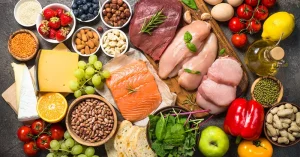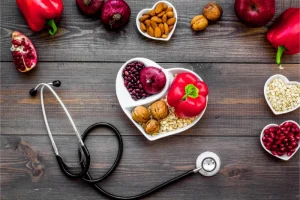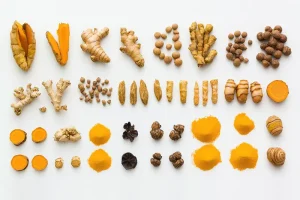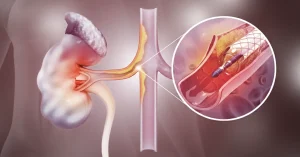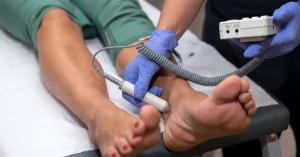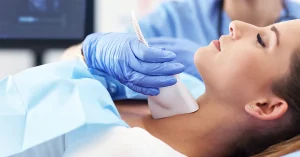Longitudinal gastrectomy, or the popularly known stomach reduction surgery, is a surgical procedure performed laparoscopically. The steps after surgery are very important for recovery and long-term results.
This article explains all details related to gastric sleeve surgery and the lifestyle patients should adopt afterward. Losing weight and maintaining it requires strong willpower because, although the stomach is smaller, its functions remain unchanged.
Diet After Gastric Sleeve Surgery – How to Deal With Hunger
The physiological process of food digestion does not change, and most patients will not need lifelong nutritional supplements or vitamins. Minor restrictions apply in the early stages of recovery, especially immediately after surgery, according to Dr. Bogdan Amza. Patients must understand that this surgery involves a significant change in lifestyle and food intake. Here is a detailed description of the diet after stomach reduction surgery and immediately after discharge.
Why Is a Diet Necessary After Gastric Sleeve Surgery?
Dietary recommendations vary depending on each patient’s condition. On the first day after surgery, only liquids are allowed to give the stomach time to adjust. This approach helps the stomach heal without being strained by solid food. In the first few days, permissible options include:
- Soup
- Unsweetened juice
- Tea
Only after one week can pureed foods be incorporated. Foods should have a paste-like consistency without solid pieces. Eat small amounts frequently, up to six or seven meals per day. Each meal should consist of four to six tablespoons of food, consumed slowly with small sips of water or unsweetened tea every 10–15 minutes.
If weakness occurs, a vitamin drink (non-carbonated) may be consumed, but only on a doctor’s recommendation and no more than 500 ml per day. This should begin on the second or third day after surgery.
Diet in the First Week After Gastric Sleeve Surgery
Foods must be pureed or blended during the first week. Suitable options include:
- Lean minced meat
- Low-fat cow’s cheese
- Cooked cereals
- Cooked fruits or vegetables
- Compote made from fresh fruit
- Baby food as an alternative
After a few weeks, new foods can be added, still pureed but in very small pieces. Meals should be eaten five to six times per day, not exceeding a quarter of a cup. Each bite must be chewed 20–30 times until very soft.
Diet After Gastric Sleeve Surgery – What Foods Can Be Added After the Second Week?
Soft foods with mushy consistency, well-cooked, may be introduced, including:
- Poultry
- Boneless fish
- Eggs
- Cottage cheese
- Soft fresh fruit
- Cooked vegetables
Diet After Gastric Sleeve Surgery: What Foods Are Prohibited?
The following foods are not recommended:
- Foods high in fat
- Sugar
- Carbonated drinks
- Beans or cabbage
- Fried foods
After six to eight weeks, patients may gradually return to more solid foods. Begin with three meals per day, each not exceeding one cup. Avoid eating until feeling full. Food tolerance varies, and some items may cause nausea initially.
Foods Most Patients Cannot Tolerate After Gastric Sleeve Surgery
Some foods are difficult to digest and may need to be avoided temporarily:
- Bread
- Carbonated drinks
- Fiber-rich vegetables
- Tough meat
- Red meat with fiber
- Fried foods
- Spicy foods
- Nuts or seeds
- Popcorn
Patients must follow the green list responsibly while tolerance improves.
Diet After Gastric Sleeve Surgery – The “Green List” of Foods
Introduce foods gradually based on tolerance. Recommended options include:
- White meat from chicken or turkey, boiled or baked
- Lean fish, baked or steamed
- Low-fat milk or yogurt
- Small amounts of bread
- Steamed or lightly sautéed vegetables (zucchini, carrots, broccoli)
- Boiled eggs
- Spices in small quantities
- Dietetic sauces
- Homemade low-sugar, low-fat desserts
- Still water
- Limited salt
Red List After Gastric Sleeve Surgery
Avoid the following:
- Pork or mutton due to high fat
- Fermented or fatty cheeses
- Mayonnaise or fried eggs
- Lard or bacon
- Very sweet pastries or cakes
- Cream-based soups
- Alcohol
Temporary vitamin or mineral supplements may be required if dietary intake is insufficient.
Diet After Gastric Sleeve Surgery in the First Weeks
Supplements may include:
- Chewable multivitamins
- Calcium
- Occasional vitamin D
- High-protein solutions in small amounts
Protein shakes support meals and provide additional nutrition. These can be discontinued later. Post-surgery monitoring involves tests every three months or sooner. Patients should track body weight for consultation purposes.
A diet high in protein and low in carbohydrates is recommended. Light outdoor exercise, such as walking, is advised in the first weeks. Gradually, patients can engage in moderate exercise. A healthy lifestyle, balanced meals, and consistent activity are essential for long-term success. If you need to learn more, schedule a consultation and see how we can help.
For more information on stomach reduction surgery, read our article on Gastric Sleeve.


